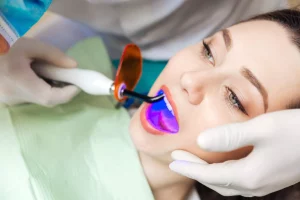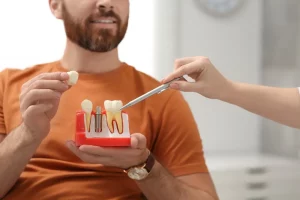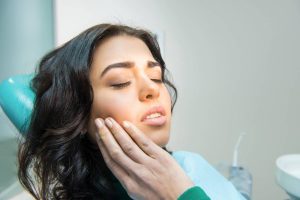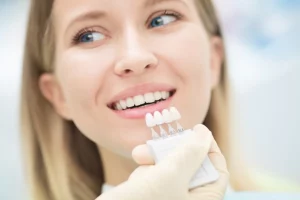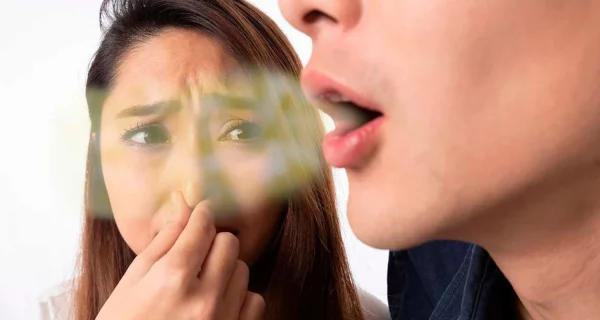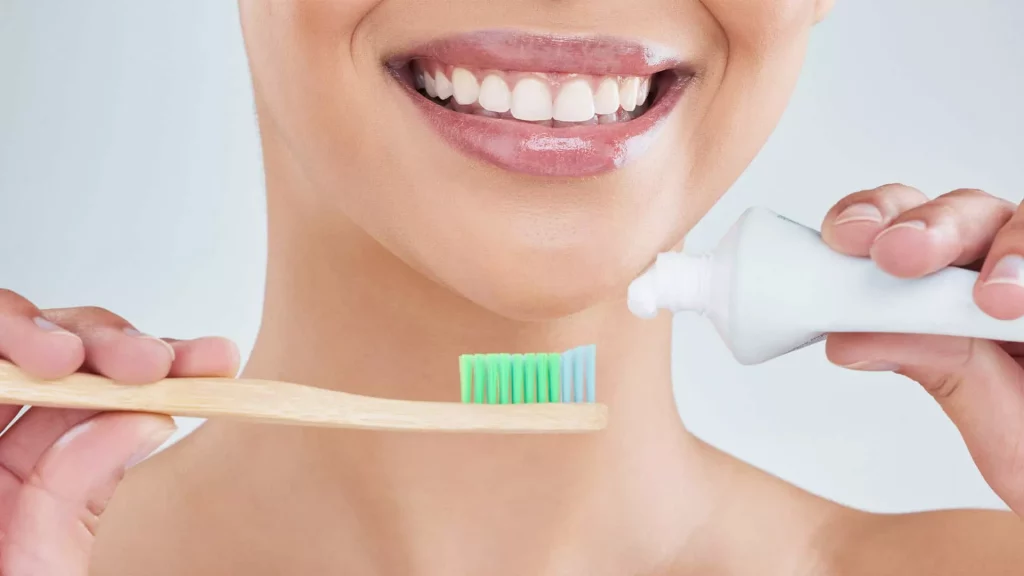Last Updated on: 12th January 2026, 12:53 am
The best dental resolutions for 2026 focus on simple daily habits. Brushing twice a day, flossing daily, eating less sugar, drinking more water, visiting your dentist regularly, and teaching kids good oral care will protect your smile. Small steps every day help to keep your teeth healthy all year.
A new year always feels like a fresh start. It is a moment to pause, reflect, and think about how we want to feel in the months ahead. Many people focus on eating better, exercising more, or reducing stress. However, very often, dental health is left behind.
Your mouth is part of your daily life. You use it to eat, talk, laugh, and smile. When your teeth or gums hurt, everything seems harder. That is why 2026 is a great year to start caring for your smile in an intentional way.
At Channel Islands Family Dental Office, we help families all across Ventura County, including Newbury Park, Thousand Oaks, Port Hueneme, Santa Paula, and Oxnard. We believe good dental habits do not need to be complicated; they just need to be consistent.
Table of Contents
ToggleWhy should dental resolutions matter in 2026?
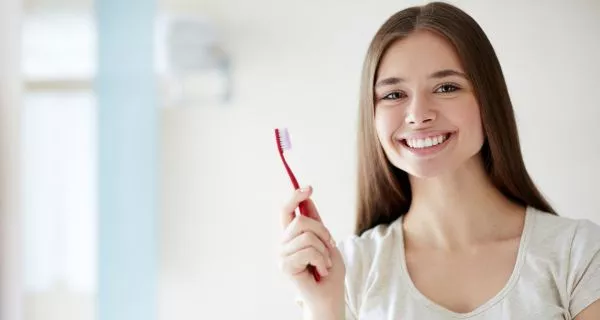
Many dental problems do not appear overnight. Cavities, gum disease, and tooth sensitivity usually grow slowly. Repeated every day, small habits either protect your teeth or slowly damage them.
When you set dental resolutions, you are choosing prevention. You are choosing comfort, confidence, and fewer emergencies. Most importantly, you are choosing to care for your health in a simple and realistic way.
Resolution #1: brush your teeth twice a day, every day
Brushing your teeth in the morning and at night may sound basic, but it is one of the most powerful habits. Brushing removes plaque, bacteria, and the food particles that damage your enamel.
Many people brush only once a day or rush through it. In 2026, try to slow down and make brushing a calm daily ritual.
How can you keep this resolution in 2026?
When brushing becomes part of your routine, your teeth feel clean and healthy every day.
You can make this habit easier by:
- brushing after breakfast and before bed
- setting a phone reminder at night
- keeping your toothbrush where you can see it
- using a soft toothbrush and fluoride toothpaste
- taking at least two minutes each time
One helpful tip is to use an electric toothbrush; it cleans better and makes brushing easier, especially for kids.
Resolution #2: make flossing a daily habit
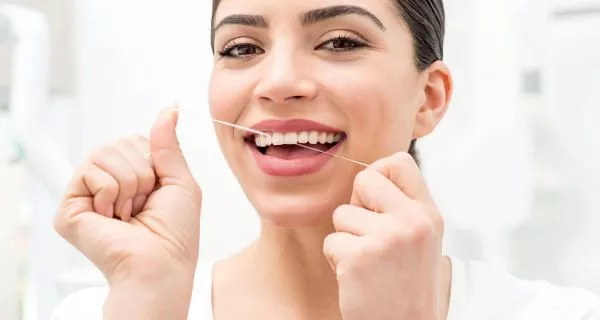
Flossing is the habit people avoid the most. It feels uncomfortable at first, and many do not see the immediate result. But flossing is what protects the spaces that your toothbrush cannot reach – like between teeth and under the gumline.
Skipping flossing allows plaque to build up and cause gum inflammation, bleeding, and bad breath.
How can flossing be easier?
Instead of forcing yourself, try making flossing easier. Here’s how:
- Floss at the same time every night.
- Keep floss next to your toothbrush or where you can see it.
- Floss while watching TV or listening to music.
- Use floss picks or water flossers if string floss is hard for you.
- Start with 3–4 times a week, then daily.
Even starting a few days a week is better than not flossing at all. With time, flossing becomes quicker, easier, and more comfortable.
Resolution #3: reduce sugar to protect your teeth
Sugar is one of the biggest enemies of healthy teeth. Every time you eat or drink something sweet, the bacteria in your mouth create acid. This acid slowly damages enamel, causes cavities, and leads to tooth sensitivity.
You do not need to remove sugar completely. The goal for 2026 is awareness. Notice how often you snack, sip sweet drinks, or eat candy during the day.
How can you reduce sugar in 2026?
Simple changes can help:
- Drink water instead of soda.
- Choose fruit instead of candy.
- Avoid snacking all day.
- Limit sweets to meal times.
- Read labels on drinks and snacks.
Remember that even “healthy” drinks like some juices (that are very acidic or with too much sugar) can damage teeth if you drink them often.
Resolution #4: eat foods that help your teeth stay strong

Your teeth need nutrients to stay strong, just like the rest of your body. Foods rich in calcium and vitamins help protect enamel, reduce inflammation in the mouth, and support healthy gums.
Healthy foods include:
- cheese and yogurt (calcium)
- leafy greens
- eggs and fish (vitamin D)
- apples, carrots, celery (clean teeth naturally)
How can you eat better for your smile?
You do not need a perfect diet. In 2026, simply focus on balance. Add more tooth-friendly foods little by little and listen to how your body feels.
Helpful ideas:
- Add one healthy snack per day.
- Replace chips with nuts or fruit.
- Drink milk or water with meals.
- Chew sugar-free gum after eating.
Good nutrition will help your teeth and gums stay strong in 2026.
Resolution #5: drink more water every day
Water is often overlooked, but it is essential for oral health. It helps wash away food particles and keeps the mouth moist. Saliva is the mouth’s natural defense, and water helps the body produce it.
How can you drink more water?
Drinking water throughout the day is one of the easiest habits to keep. Try the following:
- Carry a reusable water bottle.
- Drink water after every meal.
- Choose water instead of sweet drinks when you feel thirsty.
- Drink water before bed (after brushing).
This simple habit will support your smile every single day.
Resolution #6: visit your dentist regularly in 2026
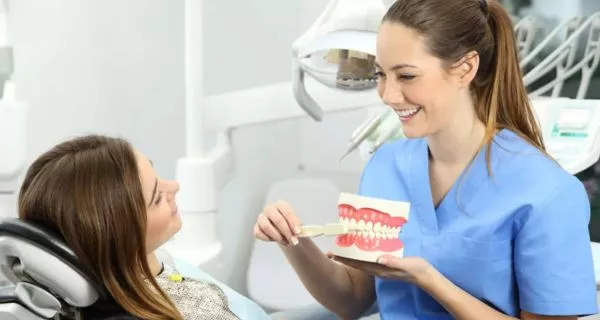
Many dental problems do not hurt at first. Regular dental checkups allow the dentist to find issues early, before they become painful or expensive.
In 2026, make dental visits part of your routine healthcare. Visiting a dentist every six months helps keep your teeth clean, your gums healthy, and your smile confident.
How can you keep dental appointments?
Simple tips:
- Schedule your next visit before leaving.
- Choose a clinic close to home.
- Use calendar reminders.
- Bring the whole family together.
At Channel Islands Family Dental Office, we make your visits comfortable and family-friendly at all our Ventura County locations.
Resolution #7: change your toothbrush on time
An old toothbrush cannot clean well; in fact, it can hurt gums and over time, the bristles bend and collect bacteria. Changing your toothbrush every three to four months helps keep your mouth clean and healthy.
When should you replace your toothbrush?
Replace it:
- every 3–4 months
- after being sick
- when the bristles look worn
You can change your toothbrush with the seasons or on the first day of each new season; calendar reminders make it easy to remember.
Resolution #8: protect your teeth during sports and activities

Sports injuries happen quickly and without warning; they can cause:
- broken teeth
- tooth loss
- jaw injuries
How can you protect your smile?
If you or your child play sports, our dentists in Ventura County recommend:
- wearing a mouthguard during sports.
- Asking your dentist for a custom mouthguard.
- Visiting a dentist as soon as possible if you fall out or have a dental injury.
These few steps prevent bigger problems in the future.
Resolution #9: quit smoking and avoid tobacco
Smoking affects your mouth in many ways. Over time, tobacco will damage your teeth and gums and increase the risk of serious health problems. The most common effects include:
- stained teeth
- bad breath
- gum disease
- oral cancer
- tooth loss
Quitting smoking helps the mouth start to heal. Your gums become healthier, your breath should improve, and your smile will look brighter. It also supports overall health and well-being.
How can you start quitting in 2026?
We know that quitting a habit like smoking is not easy. It takes time, effort, and patience. But we truly believe that consistency, willpower, and getting the right support will make it possible. Every small step counts, and you do not have to do it alone.
The journey to quitting smoking looks different for everyone, but these simple ideas will help you begin:
- Set a realistic quit date and prepare for it.
- Talk to your doctor or dentist about support options.
- Replace smoking with healthier habits, like walking or drinking water.
- Keep in mind the benefits for your smile and your health.
Quitting smoking is not about being perfect; it is about staying consistent and taking one day at a time.
Resolution #10: teach kids healthy dental habits early

Children learn by watching adults. When parents brush and floss regularly, their children are more likely to do the same.
Good habits started early:
- prevent cavities
- reduce fear of the dentist
- build confidence
How can parents help kids in 2026?
Among the best ways to help kids is to brush as a family. As noted, children learn by watching, and seeing parents brush and floss makes these habits feel normal and safe. Simple explanations help kids understand why brushing is important, to be done without fear.
To make brushing time more enjoyable, parents can:
- use colorful or character toothbrushes.
- play music while brushing to keep time.
- use reward charts and celebrate effort… not perfection.
- read books or stories about teeth and healthy smiles.
Early habits can last a lifetime. Our team truly enjoys helping parents and children create strong dental routines from a young age.
If you are a parent with questions or you are looking for a dentist for your children, our team is here to help. At Channel Islands Family Dental Office, kids feel safe, comfortable, and relaxed during dental visits at all our Ventura County locations.
How can you stay motivated all year in 2026?
Dental resolutions do not need to feel strict or stressful. They are not about doing everything perfectly but about caring for yourself with patience, kindness, and consistency. In 2026, the most important goal is progress; even small changes can create lasting results.
Staying motivated all year might feel challenging, and that is completely normal. The key is to keep things simple and realistic. When dental care becomes part of your daily routine, it feels less like a task and more like self-care.
To stay on track throughout the year, it helps to:
- set small goals.
- focus on progress, not perfection.
- celebrate small wins along the way.
- ask your dentist for support and guidance.
- make dental care a natural part of your routine.
Healthy habits grow with time. Every time you brush, floss, or choose water instead of a sugary drink, you are doing something positive for your smile.
Start 2026 with Channel Islands Family Dental Office
If your goal for 2026 is a healthier smile, Channel Islands Family Dental Office is here for you and your family. We are in Ventura County, with convenient locations in Newbury Park, Thousand Oaks, Port Hueneme, Santa Paula, and Oxnard.
Our friendly team provides care for children, adults, and seniors. Regular visits, cleanings, and guidance help keep your dental resolutions strong all year.
Frequently Asked Questions (FAQ)
Voice Search Snippets (Q&A)
References
1. Benjamin, R. M. (2010). Oral Health: the silent Epidemic. Public Health Reports, 125(2), 158–159. https://doi.org/10.1177/003335491012500202
2. Cherney, K. (2025, May 13). 10 ways to keep your teeth healthy. Healthline. https://www.healthline.com/health/dental-and-oral-health/best-practices-for-healthy-teeth
3. Cleveland Clinic. (2025, November 17). Oral hygiene. https://my.clevelandclinic.org/health/treatments/16914-oral-hygiene
4. Fiorillo, L. (2019). Oral Health: The First Step to Well-Being. Medicina, 55(10), 676. https://doi.org/10.3390/medicina55100676







